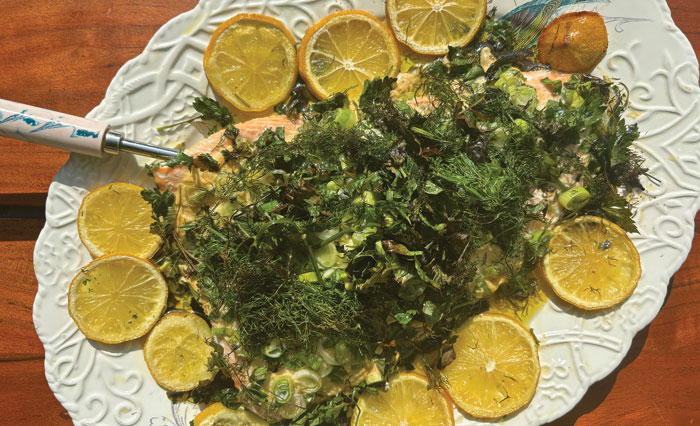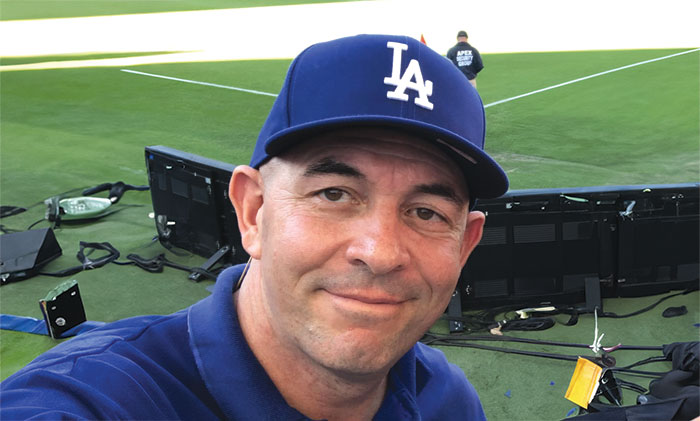Early Sunday morning on Mothers Day, as my brother and I prepared breakfast for our mom, I also prepared myself for the special day ahead. In addition to celebrating my mom, my family would also gather in our den to watch Maccabi Tel Aviv play Greece’s Panathinaikos for the Euroleague’s Basketball Championship. Proudly wearing my Maccabi t-shirt, I thought how strange it felt that on the day we are watching Maccabi compete for the European basketball championship, that night, we would attend the Israeli Consulate’s Yom Hazikaron ceremony.
As we watched Maccabi fight valiantly on the court, unfortunately coming up short, I thought how incredible it is that a team from a small Jewish country in the Middle East was playing in the European championship for an amazing 14th time, trying to win it’s sixth championship. What is it about Israel that drives it to succeed against all odds? How does such a small country continue to achieve global success in so many fields? The answer to my question would begin at the Yom Hazikaron ceremony, and would continue throughout the week, on an emotional journey from LA to Washington, D.C.
At the Yom Hazikaron ceremony, I listened to incredible stories of courage and self-sacrifice that took place on battlefields where the stakes were much higher than a basketball championship. That night, images of Israelis battling on a basketball court were replaced with images of Israelis fighting on the Golan Heights.
The next morning, my Hebrew language teacher at YULA spent class talking about childhood friends who were killed in wars. At our school’s Yom Hazikaron ceremony, the Bnei Akiva shaliach, and my father, spoke about the painful experiences of attending military funerals. Listening to all of this, I thought how incredible it is that a society that has experienced so much pain nevertheless has the strength to move on and succeed.
The transition to Yom Ha’atzmaut helped strengthen my understanding of things. At school, in the same room where we observed Yom Hazikaron, we now celebrated Yom Ha’atzmaut with Israeli food, music, and dancing. Our school held an “Israel Talent Show,” where I sang an Israeli pop song from the 80’s called “Milim Yafot” by Gazoz. I won! It felt great to win, but this contest was more than about winning. By singing an Israeli pop song whose Hebrew lyrics are pure fun, it was my way of celebrating a society that – despite her many wars – still has the spirit to develop a cool and hip music scene.
Straight from the talent show, I rushed to the Skirball Museum for the Israeli Consulate’s Yom Ha’atzmaut reception. I arrived early for the final rehearsal of a medley of Israeli songs that I would sing together with Hedva Amrani and Noa Dori. As we took the stage, with Israeli Consul General Jacob Dayan, Mayor Antonio Villaraigosa, and 800 others watching, I looked out at the crowd and recognized so many smiling faces that were weeping just two nights earlier. I opened the medley with the words “Ein Li Eretz Acheret” (I Have No Other Land), a song that represents a deep connection to Israel no matter what the circumstances.
From the Skirball, my father and I went to the airport and boarded a plane for Washington, D.C. Michael Oren, Israel’s Ambassador to the U.S., invited my father to attend the Israeli Embassy’s Yom Ha’atzmaut reception, and my father took me along. The reception was Thursday night, and we spent all day Thursday visiting the Holocaust Museum. We journeyed back to the dark years of Auschwitz, when anti-Semitism and genocide ruled the world. I saw what it looked like to be a homeless and defenseless Jew. I touched bunk beds from Auschwitz, walked through a train car used to transport kids my age to death camps, saw displays of hair, glasses and shoes, and looked at gruesome photos of death and destruction.
From this haunting experience, we went back to our hotel room, changed into dressy clothes, and went to the Andrew Mellon Auditorium. Located in the heart of Washington, D.C.’s national monuments, just minutes from the White House and Capitol Hill, the Mellon Auditorium would host over one thousand diplomats, military attaches, members of congress, administration officials, honored guests – and me(!) – all there to celebrate Israel’s 63rd birthday. I contemplated where I was all day, and where I stood that night, and I remarked to my father, “Who could have imagined that just sixty-six years after the end of the Holocaust, a crowd of over one thousand of some of the most powerful people in the world would gather in Washington, D.C. to celebrate a tiny Jewish state’s independence?” When Michael Oren spoke, he compared the downing of Osama Bin-Laden with Israel’s daring rescue operation in Entebbe.
With Ambassador Oren’s words, everything became crystal clear to me. Whether it’s straight out of the ashes of the Holocaust, on the battlefield defending Israel, in rescue missions to save Israelis, in humanitarian efforts in Haiti, in science labs that produce Nobel prizes, film productions that lead to Oscar nominations, in the streets of Tel Aviv, or on the basketball court, there is one character trait that Israelis share in common – persistence. It is this persistence that built the Jewish state, and it continues to drive Israelis to succeed against all odds. It is this Israeli persistence that inspires my own goals, and can serve as an inspiration to all young people my age.
While waiting on line to greet Michael Oren, my father bumped into the Greek Ambassador, who he had just met in Los Angeles a week earlier. My father congratulated him on Panathinaikos’ victory, but looked at him and said: “We’ll beat you next year.” Persistence.






















 More news and opinions than at a Shabbat dinner, right in your inbox.
More news and opinions than at a Shabbat dinner, right in your inbox.